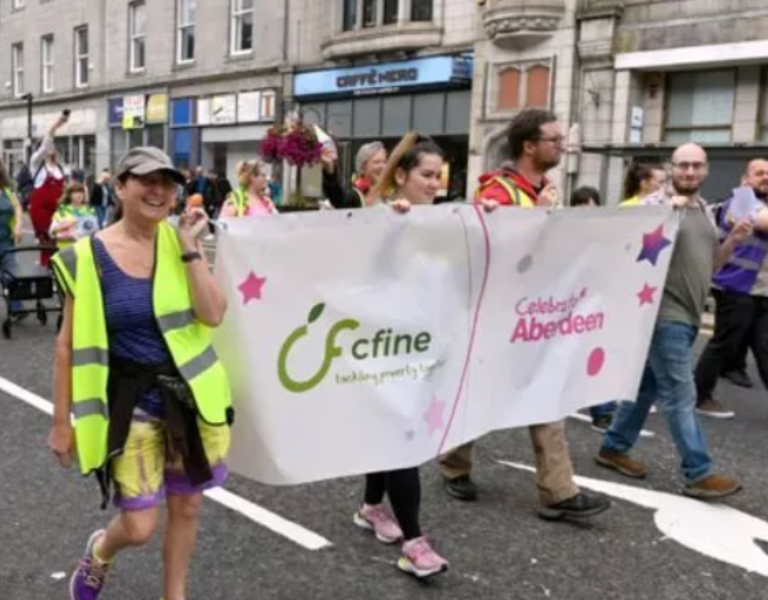
Graeme Robbie,Senior Development Manager,CFINE Community Food Initiatives North East
The reality of deep, pernicious, and increasing poverty in a seemingly rich country like ours is a damning indictment of the socio-economic age we live in. For those of us who try to draw attention to the worsening situation for so many individuals, families, and communities, it’s the daily reality that brings it home.
Seeing a mum unable to provide for her newborn baby because she herself is malnourished, unable to afford formula milk, all the while being terrified to ask for help for fear of child protection implications. This, I'm sad to say, is just one example of the increasingly dire situation being faced by many in this seemingly wealthy society. These horrendous situations are witnessed every day by those of us on the front line in responding.
These days, much of heavy lifting is done by charities and community groups. The Covid-19 pandemic threw a spotlight on poverty and food insecurity, with many people finding themselves in situations previously unthinkable, and turning to local organisations for help. Government interventions were crucial in alleviating the impact of the crisis, often working directly in partnership with third sector organisations.
The more recent cost-of-living crisis has exacerbated these issues, further compounding stress and misery, and the third sector is picking up the pieces. The true cost will of these compounding events will be felt for generations to come. In particular, the combined tole on mental and physical health is utterly frightening.
In recent years, a key response in tackling poverty has been the concept of cash-first approaches. This comes from the common-sense analysis that poverty is ultimately an issue of lack of cash. It advocates direct payment of cash to individuals experiencing poverty.
Community Food Initiatives North East (CFINE) is a charity based in Aberdeen and has a range of support services to tackle not just the symptoms of poverty, often hunger, but its underlying causes too. At CFINE, emergency food is just a small part of a much wider menu of wrap-around services to help get the root of why someone asks for help in the first place.
These wrap-around services include access to welfare, benefits and budgeting advice and education, helping to maximise household income, ‘cooking on a budget’ classes promoting food skills and healthy recipes, and employability and skills development support people into sustained, meaningful employment. All are delivered in an inclusive and person-centred way.
The point is that each of these services often stems from a single thing: a conversation about food. The power of community food as a vehicle for engagement should never be underestimated. Handing out food parcels in itself is not a useful endeavour; it erodes dignity, creates dependence, and changes nothing. It is, though, essential if someone has no other way of accessing food. When coupled with genuine, person-centred interventions, community food can be transformational. The conversation is just the start.
A cash-first approach to tackling poverty is the right response, but it should not be cash-only. CFINE’s experience has shown that a lack of cash is just the tip of the iceberg, symptomatic of much deeper issues which require adequate responses.
As economic crises deepen issues of food insecurity and poverty, it is right that governments take a strategic approach in tackling root causes. There are questions about how much investment a purely cash-based approach would take to eradicate poverty, and indeed how this would be funded. The real question should be, however, how can we as a society afford not to act? And what are the long-term costs associated with doing nothing?
The Poverty Alliance has championed the policy of a Minimum Income Guarantee, along with other interventions, which in my view would directly tackle these issues head-on. It is equally important that the transformational aspects of community development through food are not lost and indeed fostered and developed further through investment at both local and national level.
In short, the need for food is one of the things we all have in common. It is one of the great uniters, and when used in the right way, can help change lives for the better. Cash-first approaches in tackling poverty are crucial and must come with sufficient government investment, while bolstering existing provision and recognising community food as a meaningful way of tackling poverty head on.


Enter your email address to receive regular e-updates about our work. If at any time you want to stop receiving these, simply contact us. We’ll keep your details safe and won’t share them with any other organisations for their marketing purposes. For full details see our Privacy Policy.